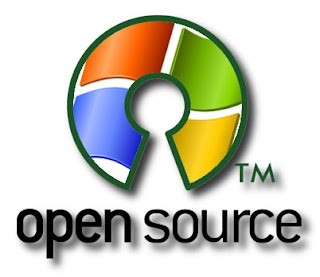Who create the open source software???
The open source label came out of a strategy session held on April 7, 1998 in Palo Alto in reaction to Netscape's January 1998 announcement of a source code release for Navigator (as Mozilla). A group of individuals at the session included Tim O'Reilly, Linus Torvalds, Tom Paquin, Jamie Zawinski, Larry Wall, Brian Behlendorf, Sameer Parekh, Eric Allman, Greg Olson, Paul Vixie, John Ousterhout, Guido van Rossum, Philip Zimmermann, John Gilmore and Eric S. Raymond. They used the opportunity before the release of Navigator's source code to clarify a potential confusion caused by the ambiguity of the word "free" in English.
Eric Steven Raymond (born December 4, 1957), often referred to as ESR, is an American computer programmer, author and open source software advocate. His name became known within the hacker culture when he picked up maintenance of the "Jargon File" in 1990. After the 1997 publication of "The Cathedral and the Bazaar", Raymond became, for a number of years, an unofficial spokesman of the open source movement.
The expression open source has wide application. For the OSI it also refers to the distinctive software development methodology employed by many open source software projects. The OSI home page starts with 'Open source is a development method for software that harnesses the power of distributed peer review and transparency of process.' However, the OSI stops short of defining this methodology in the Open Source Definition, which concerns itself only with the requirements of a licence designed to protect this way of developing software.
The open development methodology conflicts with many of the principles of software development normally taught in academia. Open source software, strictly speaking, may or may not be developed using an open development methodology. The choice of this or any other development methodology is dependent upon a project's chosen route to sustainability.
The term 'open source' originated in the worlds of journalism and intelligence, and referred to a publicly available source of information. This former use was known to the founders of the Open Source Initiative, and was felt to be 'a feature, not a bug.'
Sometimes open source is conflated with open content or free content. Open content refers to content that can be edited, changed and added to by any reader. A good example is the famous Wikipedia, an online open content encyclopaedia. Open source is used today in various contexts which take it far beyond its application in software. However, to re-state, for OSS Watch open source software always refers to software released under an OSI-certified licence.
Free software is an expression used by the Free Software Foundation. It must not be confused with 'freeware' , which is software that can be acquired at no cost but which source code may well not be available. The term ' free software ' pre-dates open software , and for some, it is the preferable term. The Free Software Defination marks out what is necessary for software to count as free.
Reference :
Is open source 'only' a licence??????
The expression open source has wide application. For the OSI it also refers to the distinctive software development methodology employed by many open source software projects. The OSI home page starts with 'Open source is a development method for software that harnesses the power of distributed peer review and transparency of process.' However, the OSI stops short of defining this methodology in the Open Source Definition, which concerns itself only with the requirements of a licence designed to protect this way of developing software.
The open development methodology conflicts with many of the principles of software development normally taught in academia. Open source software, strictly speaking, may or may not be developed using an open development methodology. The choice of this or any other development methodology is dependent upon a project's chosen route to sustainability.
Does open source mean anything else????
The term 'open source' originated in the worlds of journalism and intelligence, and referred to a publicly available source of information. This former use was known to the founders of the Open Source Initiative, and was felt to be 'a feature, not a bug.'
Sometimes open source is conflated with open content or free content. Open content refers to content that can be edited, changed and added to by any reader. A good example is the famous Wikipedia, an online open content encyclopaedia. Open source is used today in various contexts which take it far beyond its application in software. However, to re-state, for OSS Watch open source software always refers to software released under an OSI-certified licence.
Is Open Source Software the same as 'Free Software' ???
Free software is an expression used by the Free Software Foundation. It must not be confused with 'freeware' , which is software that can be acquired at no cost but which source code may well not be available. The term ' free software ' pre-dates open software , and for some, it is the preferable term. The Free Software Defination marks out what is necessary for software to count as free.
Reference :
http://en.wikipedia.org/wiki/Open-source_software
http://en.wikipedia.org/wiki/Eric_S._Raymond
http://www.oss-watch.ac.uk/resources/opensourcesoftware.xml



No comments:
Post a Comment